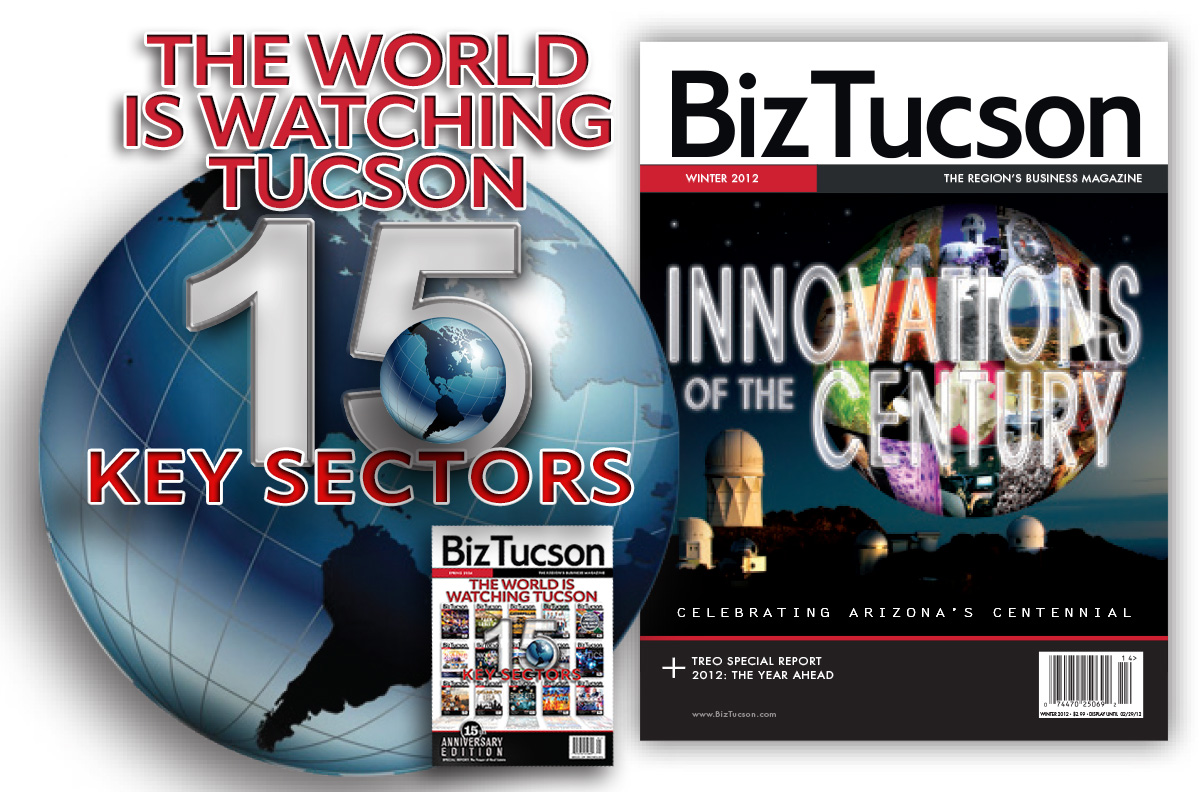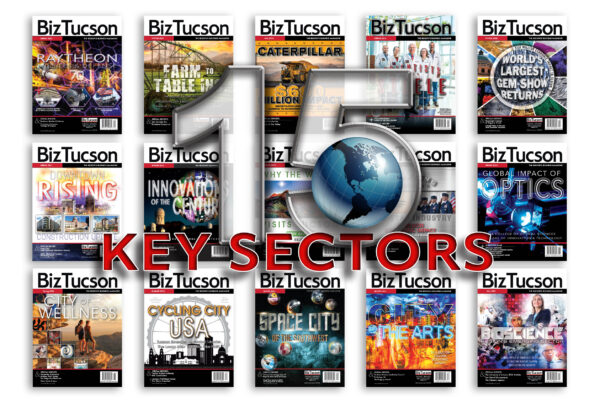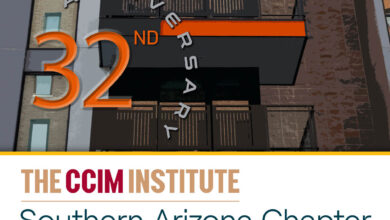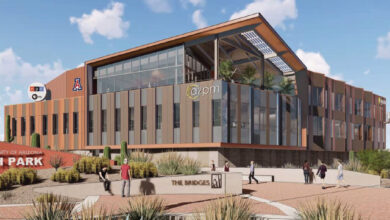
5. Silicon Desert
By Dave Perry
The Silicon Desert is gaining heat in Southern Arizona.
As evidence, industry leaders point to dirt-breaking, new company expansions, the diverse tech sector’s continued robust performance, and the assets of location, education and workforce, and a collaborative business spirit.
“As much as Santa Clara and San Jose are the heart of the Silicon Valley, Tucson is a geo-rival for technology breakthroughs,” Calline Sanchez, IBM VP of Technical and Lifecycle Service Offerings, Arizona and New Mexico state executive and Tucson site leader, told BizTucson in 2022. “With companies like IBM, local technology clusters and support organizations, the Silicon Desert is “here, it is growing, and it is making a difference.”
In October, American Battery Factory broke ground on its global world headquarters near Tucson International Airport. ABF is building its first “gigafactory,” a $1.2 billion, 2-million-square-foot space for up to 1,000 employees. There, the company intends to accelerate “growth of the clean energy economy nationwide,” said ABF President John Kern.
American Battery Factory selected Tucson because Arizona is “a premier destination for emerging technologies,” Kern said. He cited collaborative, world-class companies, and the region’s “high-capacity border and transportation infrastructure. We are pleased to join this thriving region.”
Late last year, Involta announced plans to expand capacity at its 38,000-square-foot, 10-year-old, third-generation, world-class data facility in Tucson, enabling local clients to “scale rapidly, and optimize digital and AI-focused initiatives.”
Involta sees “a remarkable transformation” under way in Southern Arizona. It characterizes Tucson as “a burgeoning technology hub, and “a hotbed for growth” in Involta’s key technology, manufacturing, aerospace, and healthcare sectors. And it finds “a well-educated workforce and a perpetual pipeline of new top-tier talent,” thanks to the University of Arizona and Pima Community College.
Sion Power Corporation, a leading technology developer of next-generation batteries, has also announced plans to expand its existing manufacturing operations here. The expansion, planned at a 111,400-square-foot building in midtown, is expected to be complete in 2026 and add more than 150 engineering, technician and manufacturing jobs.
“Tucson is now in the national spotlight, and will be a cutting-edge region ushering in new battery storage technology,” said Joe Snell, president and CEO of Sun Corridor, Inc.
“You’re going to see a lot more of those companies coming to Tucson,” said Karla Morales, VP of Arizona Technology Council, the voice and face of the state’s tech industry. “There are so many things that are incredibly innovative and technology-focused in Southern Arizona.”
In fact, Tucson ranks 13th on CBRE’s most recent annual List of Up-and-Coming Tech Markets.
“Tucson is highly desirable due to several factors, including tax incentives, investments in innovation and focus on increasing efficiencies to reduce power consumption,” said Ken Kremer, Involta’s chief technology officer. “In today’s fast-paced digital landscape, it’s critical for organizations to scale quickly while remaining compliant and gaining access to the highest caliber of technology and expertise.”
IBM drives such innovation. In 2022, IBM received 4,398 U.S. patents, with 163 of these patents earned in Arizona, Sanchez said. “This, along with University of Arizona’s 92, and Arizona State University’s 160, showcase both the region, and the site’s importance to Silicon Desert’s innovation ecosystem. IBM and the Southern Arizona community are working together to drive innovation.”
IBM’s Sanchez added, “today, hybrid cloud and AI are swiftly becoming the locus of commerce, transactions, and over time, of computing itself. This shift is driven by the changing needs of our clients, who find that choosing an open hybrid cloud approach is 2.5 times more valuable than relying on public cloud alone.”
Another significant driver of our Silicon Desert and tech innovation has been Tech Parks Arizona, which just celebrated its 30th anniversary as a transformative economic incubator. The UA Tech Park, which boasts a $2 billion annual impact, is a thriving research and development campus in addition to a major employment hub, boasting over 100 companies and 6,000 knowledge workers. It’s home to IBM, Applied Energetics, Dimensional Energy, NP Photonics and more.
“This is a testament to the vision, dedication, and collaborative efforts of our tenants, partners, and the community,” said Carol Stewart, VP of Tech Parks Arizona. “Persistence, resourcefulness, and unwavering support have been instrumental in developing our legacy of excellence and we look forward to new opportunities to build the future.”
Tech Parks Arizona is “a collaborative environment with private companies and government agencies to work on renewable energy solutions,” agreed Morales.
“There’s elements and characteristics of Tucson you can’t find anywhere else,” she said. “We have the perfect landscape, the benefit of natural resources, the workforce, and the right collaborators to really drive growth, and shape the future of the technology industry. I really believe that.”






